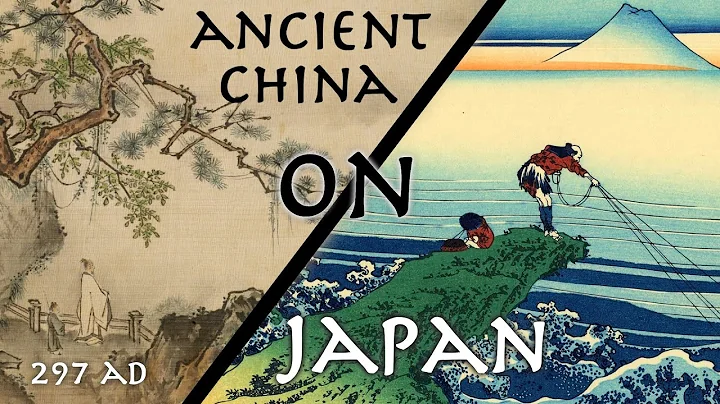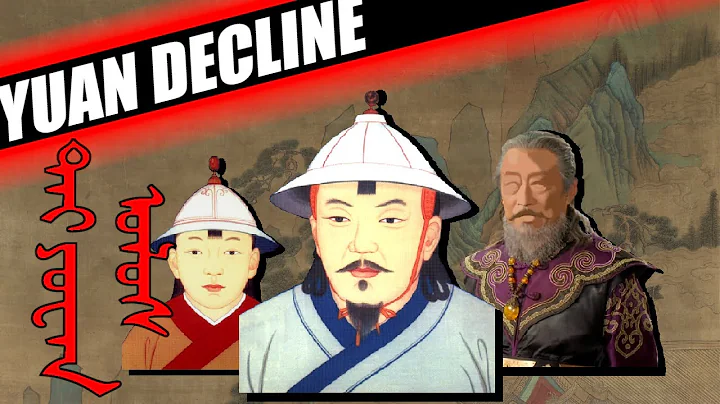
On August 23, the thirteenth year of Yongzheng (1735), at midnight, Yinzhen died suddenly in the Jiuzhou Qingyan Hall of the Old Summer Palace. His death added another mystery to the deaths of the 12 emperors of the Qing Dynasty. Before him, the cause of death of Nurhachi was unknown. After him, the cause of death of Jiaqing, Tongzhi, and Guangxu was also unknown. Every emperor has his own daily life. Normally, the cause of death should not be a mystery, but why is the death of Yongzheng so full of doubts?
1. The health status of Emperor Yongzheng
When Yongzheng was the prince, he was always in good health, otherwise he would not have been able to win the battle for the throne. Before the summer of the seventh year of Yongzheng's reign, Emperor Yongzheng's body functions were normal, which supported him in his daily affairs. At this time, he was satisfied with his health condition.

The turning point occurred in the seventh year of Yongzheng (1729). That winter, Emperor Yongzheng fell seriously ill. His illness lasted for a long time, lasting from the winter of the seventh year to the summer or autumn of the ninth year. His illness manifested itself as hot and cold, abnormal eating, and restless sleep. But what exactly the disease is is still unclear.
Later, he developed a lump on his jaw, and asked Tian Wenjing , Li Wei , Ertai to recommend a good doctor to him.
In the eighth year of Yongzheng (1730), Li Wei recommended Taoist Jia Shifang to Emperor Yongzheng. Emperor Yongzheng received treatment from the Taoist priest Jia Shifang. Emperor Yongzheng had high expectations for him at the beginning. The doctor and patient cooperated well, so Yongzheng was very happy that there were some curative effects. As a result, in September, Emperor Yongzheng suddenly executed him. It turned out that Yongzheng believed that Jia Shifang's purpose in treating him was to manipulate the emperor's health. Emperor Yongzheng's feelings were not groundless. In fact, it may be that Jia Shifang used a combination of hypnosis, massage and qigong to treat Emperor Yongzheng, but his own skills were not enough, which made Emperor Yongzheng feel good and bad. Jia Shifang began to pretend to be a ghost to deceive the emperor, but was discovered by Emperor Yongzheng and executed.

Emperor Yongzheng showed his royal power in this matter and was moody. He was by no means a kind monarch. But what kind of illness Emperor Yongzheng had was still not revealed. But this time Emperor Yongzheng was indeed seriously ill, so much so that he made arrangements for his funeral. For example, in June, he summoned some princes and ministers and explained the main contents of the imperial edict in person. In September, he told Zhang Tingyu that he had written the edict of succession. But Emperor Yongzheng finally came through this time.

This illness had a certain impact on Yongzheng's political career. He said that he had been resting for several months. During this period, he could not concentrate on government affairs, but he still insisted on being a director. He doesn't want to rest completely, and he is very pushy. He works hard to get things done whenever possible. It consumes a lot of energy and is not good for your health in the long run.
After the autumn of the ninth year of Yongzheng (1731), Emperor Yongzheng recovered.
As a result, Emperor Yongzheng fell ill in the Old Summer Palace on August 21, the thirteenth year of Yongzheng (1735). The next day, he was still discussing matters with Zhang Tingyu during the day. His condition worsened at night, so he announced that he would pass on to Hongli , and he died on the third day.

2. Six theories about the cause of the death of Emperor Yongzheng
Emperor Yongzheng died suddenly, which was a normal death. However, official data does not record the cause, which easily arouses people's suspicion. In addition, the legends and comments about his personality make it more likely to arouse people's suspicion. speculation. So with the blessing of people's rich imagination, Yongzheng had several more ways to die.
The first theory is that Emperor Yongzheng was assassinated by Lv Siniang. Who is this Lu Siniang? At that time, Lu Liuliang was slaughtered after his death because of the Literary Prison. Some of the Lu family were executed and some were sent away. However, his daughter (some say granddaughter) Lu Siniang escaped, hiding her name and hiding among the people. Lu Siniang studied martial arts under her master, studied hard and practiced hard. She was especially good at swordsmanship and had superb skills. Later, Lu Siniang disguised herself and sneaked into the palace, and one day she took the opportunity to chop off Emperor Yongzheng's head. This folklore has been circulating for more than 200 years and is still in the market today.
In 1981, archaeologists once excavated the underground palace of Yongzheng Tailing, but they gave up without opening it. However, there was a rumor in the society that the coffin had been opened and that Emperor Yongzheng had a body but no head. They wanted to use this to prove that Emperor Yongzheng's head was chopped off by Lu Siniang. is it possible? In fact, in the Lu Liuliang case, all men, women, and children of the Lu family were imprisoned and could not escape. Even the graves of Lu Liuliang and his son were monitored. How could Lu Liuliang's daughter or granddaughter escape? Therefore, the theory that Lu Siniang assassinated Yongzheng was made out of nothing and is purely unofficial history.

Yongzheng Tailing Underground Palace
The second theory is that Yongzheng was strangled to death by a palace maid. The maid trying to strangle the emperor did not happen in the Qing Dynasty, but it did happen in the Ming Dynasty. Jiajing Twenty-one years (1542), Ming Shizong was strangled to death by the palace maid Yang Jinying and others. He recovered with the medicine of the imperial physician Xu Shen. The temple names of Emperor Yongzheng and Emperor Jiajing are both Emperor Shizong. This statement is a replica of Emperor Jiajing being hanged by a palace maid.
The third theory is that Yongzheng was assassinated by the Lu family in Hunan. This story says that Lu was executed for treason. His wife was good at swordsmanship. In order to avenge her husband, she entered the Changchun Garden , assassinated Emperor Yongzheng, and then committed suicide. This is what novelists created. This story stated that the plot was about the murder of a Hunanese, probably because of the Zeng Jing case, and the Old Summer Palace was mistakenly written as Changchun Garden, which shows that the rumor is inaccurate.
The fourth theory is that Emperor Yongzheng was poisoned to death by Cao Xueqin and Zhu Xiangyu conspired. It is said that Cao Xueqin had a lover named Zhu Xiangyu. Zhu Xiangyu was later occupied by Emperor Yongzheng and became his queen. Cao Xueqin missed her lover, so she found a way to find a job to sneak into the palace. Later, she conspired with Zhu Xiangyu to poison Emperor Yongzheng to death with elixirs. It is obvious that this fabricated story is nonsense.

The fifth theory is that Emperor Yongzheng died of a stroke. This still needs historical data to prove.
The sixth theory is that Emperor Yongzheng died of poisoning after taking elixirs. The story of Jia Shifang mentioned earlier is an example. Later, Emperor Yongzheng was interested in Taoist priests and elixirs, and rebuilt a Taoist temple for Taoist Ziyang. He also invited Taoist priests Zhang Taixu, Wang Dingqian and others to the Old Summer Palace to refine elixirs in order to achieve immortality. After the death of Emperor Yongzheng, Emperor Qianlong expelled all the Taoist priests from the palace and did not allow them to reveal even a few words in the palace. Emperor Qianlong's harsh attitude may be related to the cause of his father's death. This statement is very reasonable, but it is still an inference after all.
In fact, Emperor Yongzheng probably died suddenly due to illness caused by overwork and taking elixirs. Death by medicine and death by exhaustion go hand in hand.

Wen Shijun said
The life of Emperor Yongzheng has left people with endless topics. Even his death has become a mystery. An obvious question is, why do the first four theories about the cause of Emperor Yongzheng's death all say that he was assassinated? In fact, this is not a coincidence, but reflects the background of the times. That is because the New Deal implemented by Emperor Yongzheng offended too many vested interests, especially the scholar group. Therefore, the theory of Lu Siniang's assassination has been widely spread. It is possible that the source of this legend is a frustrated scholar. The fact that Zeng Jing wanted to instigate Yue Zhongqi to rebel also reflects that those scholars had deep prejudices against Emperor Yongzheng. Emperor Yongzheng deprived many of the privileges of those with vested interests, which affected their interests, and his strict and even harsh emperor may make people hate him and hope that he will be assassinated and give up the throne as soon as possible. This is why the first four theories about the cause of Emperor Yongzheng's death are all about assassination.

References
Feng Erkang: "The Biography of Yongzheng", People's Publishing House, 2014 edition;
Yan Chongnian: "The Twelve Emperors of the Qing Dynasty", Zhonghua Book Company, 2019 edition.
(Author: Haoran Literature and History·Zhuzi)
This article is an original work of Haoran Literature and History, a self-media popularization of literature and history science. Reprinting without authorization is prohibited!
The pictures used in this article are all from Internet searches unless otherwise noted. If there is any infringement, please contact the author to delete it. Thank you!
Haoran Literature and History is a self-media for popularizing literature and history with an all-doctoral team, and is a high-quality author in literature and history on the mainstream platform of the entire network. makes professional history more interesting and interesting content more in-depth. Ancient and modern times, China and foreign countries, archeology and cultural heritage. For more content, please pay attention to our public account of the same name (id: haoranwenshi)









![[ENG SUB] A History of China: 金朝兴亡 The Rise and Fall of the Jin Dynasty 国君死社稷 哀宗无愧焉 | EP66 | 中国通史 - DayDayNews](https://i.ytimg.com/vi/NPbnauZEif8/hq720.jpg?sqp=-oaymwEcCNAFEJQDSFXyq4qpAw4IARUAAIhCGAFwAcABBg==&rs=AOn4CLBqZPePZM_VLW4LpB3ohvWpZYYXRA)
![[NCLC 2023] Kingdom of Characters: A Journey Through the Evolution of Chinese Language with Jing Tsu - DayDayNews](https://i.ytimg.com/vi/WFKn3eLqgmE/hq720.jpg?sqp=-oaymwEcCNAFEJQDSFXyq4qpAw4IARUAAIhCGAFwAcABBg==&rs=AOn4CLAclMNTRcW-HzOz0ee5iYFKZUFLlw)










